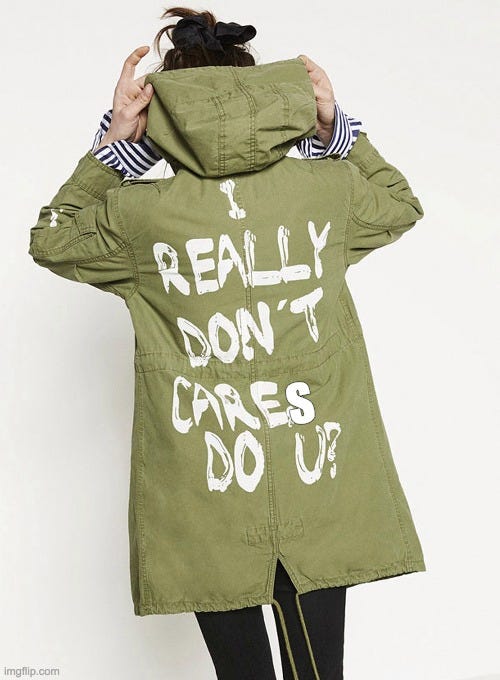Visible Hands: Accounter-Point 📉
Bailout governance and the quality of corporate financial statements.

Definitely not. It feels a little overwhelming choosing the first newsletter topic to tackle. We could be writing about unemployment; the Tax Cuts and Jobs Act of 2017 and how that helped us to our current levels of national debt, privacy issues, short-selling, dividend cuts; the backlash to globalization, gig work, treasury volatility, the leanness of supply chains that has left us less able to deal in crisis; the impact of the virus on local government balance sheets, and much more. We’ll try to cover lots of that (and other non-COVID related topics in the coming weeks).
For today: we’ll talk about bailout governance and the quality of corporate financial statements.
The CARES Act has some basics you might already know: it’s estimated that $560B will go to individuals, $500B to large corporations, $377B to small businesses, $339B to state and local governments, $153B to public health and $45B to education. For everyday people, unemployment insurance was expanded and direct payments will be sent out.

For the money going to businesses, restrictions do exist in some cases, namely on dividends and share buybacks. But enforcement of its usage -- retaining workers being the primary goal -- is weak. And the Fed’s substantial financial leverage (10x!) allows hundreds of billions to quickly become trillions.
Like in the 2018 bailouts, there will be an inspector general and oversight board. But the appointee is Brian D. Miller, from President Trump’s legal team rather than an independent party.
The legislation could protect the anonymity of companies who get aid, thus making it difficult for the public to keep them accountable. The recipients of the Small Business provision don’t need to be disclosed, especially since they are usually privately held. And the money going to bigger businesses could be obfuscated as well.

That’s what brings us to the importance of high quality financial statements. How detailed disclosures are about aid could vary widely.
Unfortunately, the quality of financial statements is under intense scrutiny right now in the U.S. For one, auditors are sometimes required to travel to physically count things like inventory; they’re not able to do that right now. There will be lots of potential revaluations of assets, modified lease agreements, changed financial forecasts; and many of these will have a subjective nature to them that requires disclosure.
After the Enron scandal, the PCAOB (Public Company Accounting Oversight Board) was created to audit the auditors. It hasn’t been extraordinarily tough since its creation, issuing $6.5 million in fines. But it’s being gutted even further (this process started before Covid-19). In 2019, a whistleblower wrote that the PCAOB was working more slowly, was plagued with board infighting, had multiple senior staff departures, and had a culture of fear. In February, the Trump administration proposed folding the PCAOB into the SEC which the Financial Times called “very bad” (funding would be downgraded and the SEC wouldn’t be as focused).
Cool, cool, cool.

As a consumer:
Check out Just Capital, which most recently looked at how America’s largest employers are treating stakeholders during this crisis. Macy’s, for instance, they listed as having done furloughs without cutting exec pay. As you make purchasing decisions going forward, maybe keep this top of mind?
As an employee:
At this rate, insiders might just be the best watchdog. Helpful guidance on whistleblower rights here, compiled by the National Whistleblower Center.
As an investor:
Dig into the future SEC filings of any public company receiving government relief. Executive compensation and disclosures are regularly on the docket during proxy voting season -- use your voice if you do not feel confident in management.
As a voter:
Consider supporting public officials who are working to strengthen regulatory and audit bodies. For instance, Senator Sherrod Brown and Senator Jack Reed led the follow up with the SEC (which oversees the PCAOB currently) in a formal letter after the whistleblower complaint was made public in October.

Tesla furloughs hit half of U.S. sales and delivery employees
Big Business pledged gentler capitalism. It’s not happening in a pandemic.
Private equity pushes for access to CARES Act Small-Business Loans
SoftBank warns of historic loss as value of tech startups collapses
🙏 Thanks for reading the first official Visible Hands. Please invite any friends, roommates, coworkers, armchair activists, and United Airlines shareholders to join the movement. Stay connected with us through Instagram, Medium, and, of course, email (visiblehandsmedia@gmail.com). See you next week!




